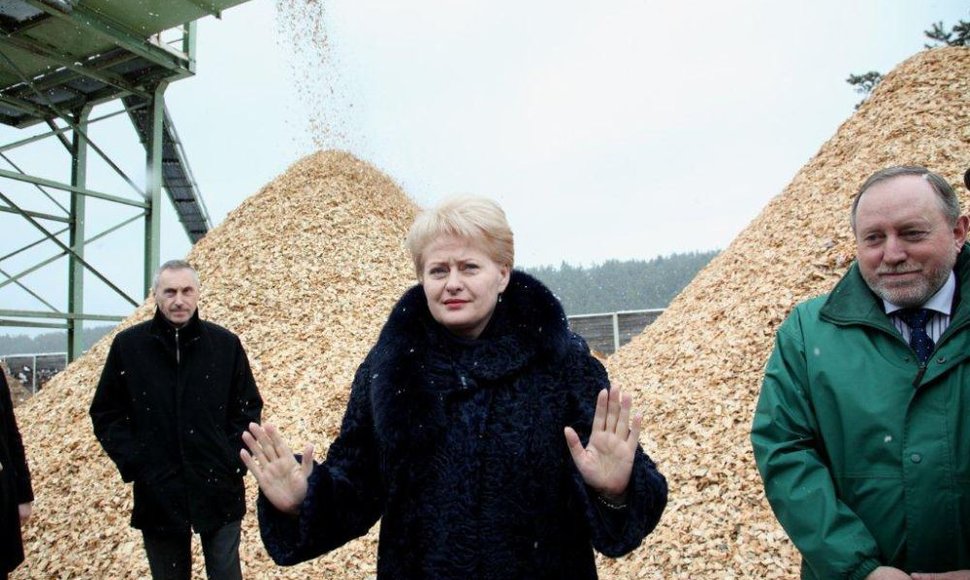Ramūnas Vilpišauskas, director of Vilnius University International Relations and Political Science Institute, said that president's move and communication of the decision was "unclear and lacking motivation."
"Either something is withheld and we do not have full information or, if there are no more reasons, it seems to me that Lithuania is not working to develop constructive bilateral ties," Vilpišauskas said.
 |
| „Scanpix“ nuotr./R.Vilpišauskas |
In his words, the decision not to go to Warsaw for a discussion on issues on the agenda of the upcoming NATO summit signals reinforced links between Lithuanian-Polish tensions and other regional issues.
"The agenda of the NATO summit is an issue where the Baltic states and Poland hold the same interests, while bilateral issues between Lithuania and Poland are an entirely different thing. This takes willingness to cooperate from both the Lithuanian and the Polish side. Participation is a more suitable way of addressing issues with different interpretations," the political expert said.
In his opinion, clashes in the Lithuanian-Polish relations are of little help to the development of Lithuanian ties with other Baltic and Nordic states, since the prevailing viewpoint is that constructive and firm Vilnius-Warsaw relations are important to the entire region in joint energy projects and security matters.
A misunderstanding
Political reviewer Kęstutis Girnius, meanwhile, dismissed the president's decision as misunderstanding.
"I think it's a misunderstanding. I think it is vital to talk even to one's enemies, let alone allies. And Poland is a partner in NATO and the European Union," Girnius told BNS.
 |
| BFL nuotr./Kęstutis Girnius |
"The president may think nothing significant would be achieved there, but when the president of a neighboring state invites you and other two presidents agree to attend, you might as well go and join in," he added.
In Girnius' words, the president's decision could affect Lithuania's image in the Nordic states.
"The president and other Lithuanian officials have emphasized the importance of strenghtening ties with the Nordic countries. However, the Nordic countries have long been concerned with miscommunication among the Baltic states. The latest case will send a message of Lithuania being a highly cranky partner who is difficult to start normal relations with, because you never know when the president or somebody else may do something odd," Girnius said.
In his words, the situation reminds a little of the interwar period when clashes between Lithuania and Poland inhibited closer Baltic cooperation.
"During the interwar period, both Warsaw and Kaunas demanded support, while Latvia and Estonia tried to remain neutral, which made the Baltic ties far more distant than they could have been," the political reviewer noted.
Impediment to the region
Director of the Estonian Foreign Policy Institute and University of Tartu professor Andres Kasekamp told BNS that the Lithuania-Poland quarrel did indeed affect regional cooperation.
"From the regional point of view, this quarrel benefits nobody except for some extreme nationalist politicians in both countries," Kasekamp told BNS, describing the two countries' differences as regrettable.
The Lithuania-Poland quarrel harms both countries and affects cooperation in NATO, the European Union and the entire Baltic Sea region, Kasekamp has said. "It is in Estonia's interest that Lithuania and Poland find a solution to their problems as soon as possible and Estonia should use every opportunity to help them iron out their differences," he said.
Let's not dramatize
Meanwhile, Vytis Jurkonis of the Eastern European Studies Center told BNS that "the situation should not be dramatized."
"Of course, regional cooperation and top-level cooperation with Poland should be Lithuania's priority. Analysis of President Grybauskaitė's specific decision should take into consideration more details behind the plan not to go to Warsaw for a meeting with Polish and Baltic leaders. In the context of current Lithuanian-Polish relations, all diplomatic details are exaggerated and sensitive," Jurkonis said.
"Nevertheless, the situation should not be dramatized and should be put in a broader context – Lithuania's multilateral foreign policy is regarded well, especially after the successful presidency over the Organization for Security and Cooperation in Europe (OSCE). It is wrong to claim that a single refusal to attend a meeting will all of a sudden damage Lithuania's image in the region," he added.
In his words, "when assessing the event in the context of Lithuanian-Polish relations, the media should take a responsible view of the situation and refrain from fueling the already tense bilateral ties."
"We can ask a rhetorical question – would Grybauskaitė's decision to attend the meeting send a positive signal to the development of Lithuanian-Polish relations?," Jurkonis said.
Earlier on Tuesday, the Lithuanian president's advisers confirmed Grybauskaitė was not planning to go to Warsaw for a meeting of Polish and Baltic presidents to discuss the agenda of the upcoming NATO summit.
Unlike Grybauskaitė, presidents of Latvia and Estonia have accepted Bronislaw Komorowski's invitation to come to the Polish capital.
Relations between Lithuania and Poland have been tense lately, amid differing opinions of the situation of national minorities.












